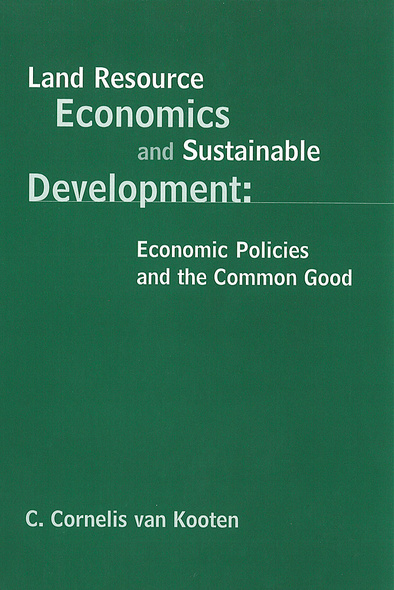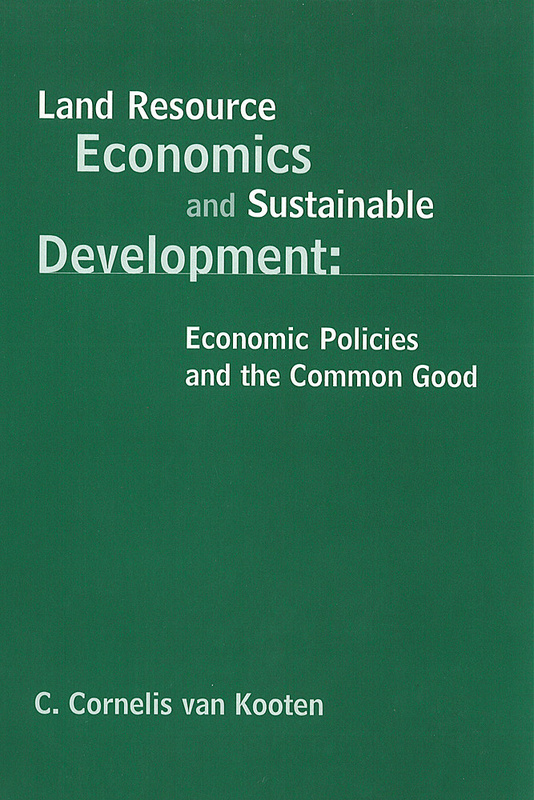
Land Resource Economics and Sustainable Development
Economic Policies and the Common Good
“This text seeks to provide an introduction to issues of land use and the economic tools that are used to resolve land-use conflicts. In particular, tools of economic analysis are used to address allocation of land among alternative uses in such a way that the welfare of society is enhanced. Thus, the focus is on what is best for society and not what is best for an individual, a particular group of individuals, or a particular constituency. What this text seeks to provide is a balanced and just approach to decision-making concerning allocation of land.” – from the Introduction
Land Resource Economics and Sustainable Development has already been tested, in a slightly different format, on over 400 students in a number of upper-level undergraduate and lower-level graduate courses. It presents a pragmatic approach to the issues of land use and sustainable development, and breaks away from the narrow focus of most economics texts on resources as it takes into account current political and ecological concerns while at the same time providing readers with the essential economic tools for a rational discussion of land use conflicts.
Land Resource Economics and Sustainable Development addresses a wide range of issues not covered in other economics texts. These include:
- soil erosion;
- wetlands preservation;
- global climatic change;
- urban/rural conflict;
- urban land use;
- range management;
- forest management; and
- public land management.
The broad scope and practical perspective make Land Resource Economics and Sustainable Development useful to students, interdisciplinary researchers, and professional economists and managers working in the fields of economic development, the environment, agriculture, and forestry.
Both U.S. and Canadian data are used throughout the text to illustrate the issues discussed in the book.
1 Introduction
Part 1: Theoretical Considerations
2 The Concept of Rent: Is Land Unique?
3 The Theory of Welfare Measurement
4 Property Rights, Market Failure, Externality, and Environmental Economics
Part 2: Project Evaluation and Economic Development
5 Social Cost-Benefit Analysis: Evaluation of Resource Development Projects
6 Input-Output Models for Regional and Community Development
7 Valuing Nonmarket Benefits
Part 3: Land-Use and Sustainable Development
8 Conservation, Sustainable Development, and Preservation
9 Economics of Global Climatic Change
10 Economics of Soil Conservation
Part 4: Economics of Land-Use Planning and Control
11 Efficiency and Equity in Land-Use Planning
12 Land Preservation and Conservation
13 Control over Water Use in Agriculture: Economics of Irrigation and Wetlands Preservation
Part 5: Economics of Public Land Management
14 Economics and Management of Public Forestlands
15 Economics and Public Rangeland Management
16 Management of Public Lands for Multiple Use
Part 6: Conclusions
17 Ethics and Land Resource Economics




